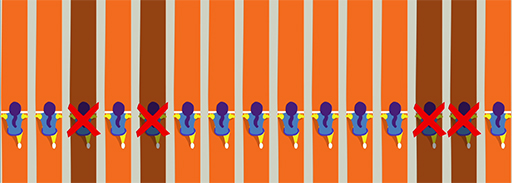 03.08.2016 – All throughout their lives, women and girls must face various types of discrimination that greatly compromise their future prospects. During this International Women’s Rights Day, FIDH will be highlighting this sad fact in a video made by Agence Babel, with the voice of American film maker Randa Haines. FIDH reminds us that the struggle is not just for a day, and calls for actions to continue daily so that women’s rights can progress.
03.08.2016 – All throughout their lives, women and girls must face various types of discrimination that greatly compromise their future prospects. During this International Women’s Rights Day, FIDH will be highlighting this sad fact in a video made by Agence Babel, with the voice of American film maker Randa Haines. FIDH reminds us that the struggle is not just for a day, and calls for actions to continue daily so that women’s rights can progress.
One day out of 365. One day in a world wherein from the time they are born until they die, women experience discrimination and violence at every stage of their life. Preference for males, which is still very widespread, forces many families in India, China and Caucasus to resort to selective abortion based on the sex of the unborn child. According to the United Nations, the world population is short of 200 million females. Discrimination against women, therefore, begins even before birth.
According to UNICEF, at least 200 million girls and women in 30 countries have undergone genital mutilation, 700 million women were made to marry during childhood. According to UNESCO, 63 million girls around the world have no primary or lower secondary education.
Many women are being deprived of their reproductive rights. Every year, 22 million women and girls must undergo abortions in unsanitary conditions, putting their health and their lives at risk.
Male violence is a scourge that many women must cope with during the course of their lives. According to the World Health Organization about 1 in 3 (35%) of women worldwide have experienced either physical and/or sexual intimate partner violence or non-partner sexual violence in their lifetime. Sexual violence is sometimes used as a political weapon, to prevent women from taking part in public affairs or as a strategy of armed conflicts.
Certain legislation based on sharia law reduces the inheritance rights and the value of testimony of the women to half that of the man. Unlike men, they are sometimes unable to pass on their nationality to their children, are subjected to greater restrictions in divorce procedures, or are particularly targeted by archaic legislation which punishes adultery with lashing or stoning. According to the United Nations, women only account for less than 20 % of the world’s landholders, and this number is less than 5 % in North Africa and West Asia. In OECD countries, women’s salaries are, on average, 15% less than those of men.
